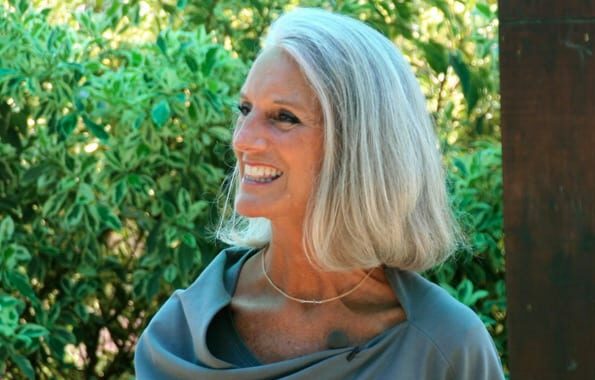“Eat your vegetables, they’re good for you.” My mom said those words to me countless times as a kid. But I didn’t care how good vegetables were for me, I didn’t like them, and brussels sprouts were the worst!
Mom was right. Veggies are good for me, and I should have eaten more. The nutritional benefits would have been fantastic.
All leaders face “brussels sprouts” kinds of tasks, truths and responsibilities. You know they’re good for you, and need to be adhered to, but you don’t want to just the same.
My advice. Eat your “leadership veggies” anyway. The benefits are obvious.
The following are six of the most common things leaders hate to do, but smart leaders do them anyway.
6 Things Leaders Hate to Do:
1) Get honest about your limitations.
I can do all things in Christ. Right?! Well, yes, but I still can’t slam dunk a basketball. Leaders have to know and embrace their limitations.
Embracing your limitations is not the same as giving up, deciding not to work hard or continuing to grow as a leader.
I play the guitar, but no matter what I do, I’ll never play like Jimmy Hendricks, Eric Clapton or Carlos Santana. In the same way, I’ll never preach like Andy Stanley, Matt Chandler or Louie Giglio. It can be tough to own that, but the sooner you do, the sooner you can be set free to become all that God has intended for you.
So, how about you? What are your greatest strengths as a leader? Do you know your limitations? From your energy level to your unique skills and abilities, how has God wired you to succeed?
2) Allow God to determine the definition of church growth success.
I would love to be able to decide how large the church I serve becomes. But God doesn’t allow that.
The New Testament makes it clear that the church is intended to grow, but there is no indication that we get to determine the size. I think God knows us too well to allow that.
Yet, we strive and get frustrated if our church doesn’t grow as fast as the superstar church across town. Don’t misunderstand, this isn’t a platform for excuses, or suggesting that lack of progress is OK.
But God doesn’t set His Kingdom standards based on how many are sitting in the pews, in fact, we are all wise to do our best to teach and lead according to our best understanding of how God defines success.
Success for your church is best determined by seeking God through prayer, and aligning yourself and your work to His vision for your church. Then stay focused right there. That’s my prayer for us at 12Stone.
3) Focus on execution as much as ideas.
Ideas are fun! Cultivating ideas like titles for a blog post is a blast, but actually writing the post, well, that’s more like work.
I’m not suggesting that generating good ideas is easy, but an idea that the Holy Spirit can give you in a moment can take a thousand hours to see it to completion.
In fact, a “B” idea that gets completed is better than an “A” idea that never gets done.
Learning to develop good ideas and connecting that to equally outstanding execution is essential, but it’s surprising how often that fails in the local church.
I think it’s natural for us to like the vision, the idea, and what’s new and shiny best. Like launching a new campus, or the start of a new sermon series. But when the balloons have faded there is much work to do.
The best leaders are ruthlessly intent on execution.
4) Cast vision beyond your ability, but not beyond your faith.
Casting vision, or signing on to the vision when it’s beyond your ability, is a risk. Failure is possible. That’s leadership. If failure isn’t possible, it’s unlikely that you’re leading into new territory.
Confidence is required to press forward, but the future is still uncertain. At the same time, however, you should never lead beyond your faith.
It’s non-negotiable that you believe God can deliver the vision you are leading to.
That requires that you believe two things. First that God is the author of your vision. Second, that God is with you and for you.
These two things are relatively easy to believe in your study or prayer room, but the risk becomes real when you go public. Wise leaders don’t go public without knowing God is the author of their vision.
5) Slow down.
Most of us hate the idea of going slow, and yet none of the most important and meaningful things about the local church can be rushed.
Our responsibilities may cause us to feel pushed and rushed, but those we lead and serve don’t want to feel that from us.
The church is entirely relational. The first relationship is with God and the second relationship is with all those you serve. (Starting with your own family.)
It takes highly developed skill to accomplish your responsibilities, and yet do so with poise, positivity, generosity and a non-anxious presence.
In fact, if everything you do seems rushed or last minute, you are likely experiencing unnecessary stress and possibly unnecessary problems.
The most important things in leadership require substantial and unhurried time.
Things like: prayer, leadership development, study and think time, listening, love, writing a lesson, discernment, etc.
6) Pay attention to the right details.
I’ll let you in on a surprising fact. The best leaders I know are very detail oriented in at least one specific area. They usually don’t like it, but do it anyway.
They are not picky perfectionists or disempowering leaders, but they pay very close attention to specific details.
For example, some senior pastors know the financial details backward and forward. Some senior pastors care about and are involved in every minute of programming on a Sunday morning. (This point is not limited to senior pastors!)
The key principle is not about being focused on all the details, but being focused on the right details at the right time. And further, having the ability to know when to let someone else handle the rest.
The best leaders, whether you are the senior pastor or new to the team, know what details are important and they pay very close attention.
What details are you paying close attention to?
This article originally appeared here.













